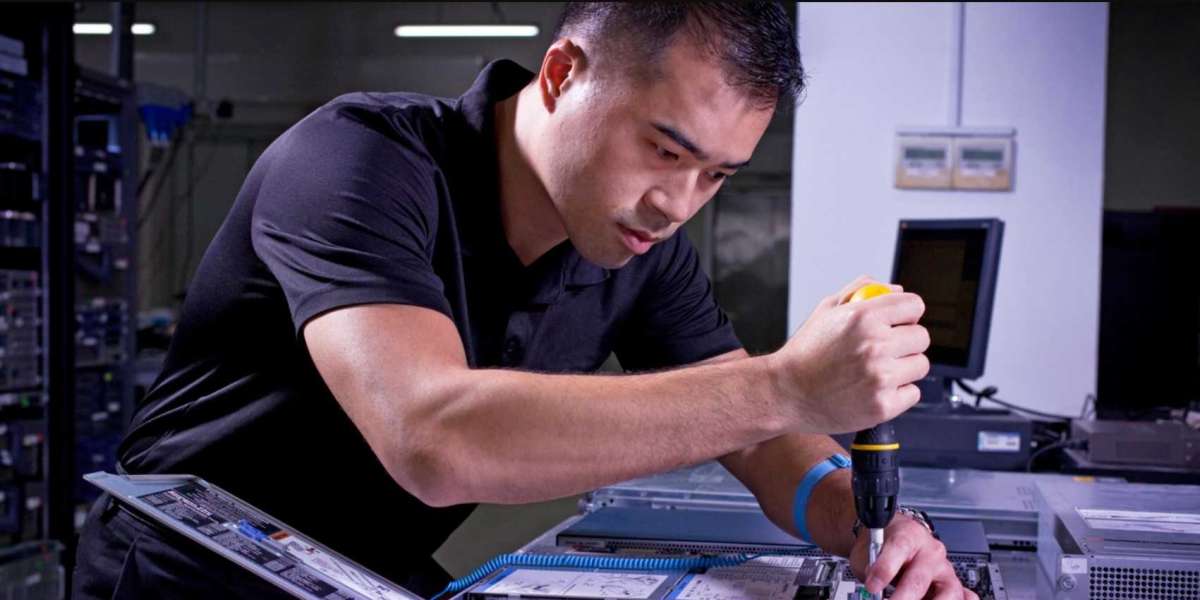In the cold months, your furnace becomes the unsung hero of your home, tirelessly working to keep you warm and cozy. But, like any hero, it may reach a point where it needs to retire, making room for a new, more efficient model. In this comprehensive guide, we'll explore everything you need to know about furnace replacement, from recognizing the signs that your old furnace is ready to bid farewell to navigating the world of new furnace options.
Signs Your Furnace Needs Replacement
Strange Noises
One of the first signs that your furnace might be on its last legs is unusual sounds emanating from it. Clanks, bangs, or squeals could indicate worn-out components, signaling the need for replacement.
Increased Energy Bills
If you've noticed a sudden spike in your energy bills without a corresponding increase in usage, your furnace might be operating inefficiently. An upgrade could lead to significant long-term savings.
Uneven Heating
Do you find some rooms in your home warmer than others? Uneven heating is a red flag that your furnace may not be distributing heat evenly, a problem that a new unit could easily solve.
Frequent Repairs
If you're constantly calling in technicians for repairs, it might be more cost-effective to invest in a new furnace. Continuous fixes can add up quickly, making replacement a sensible choice.
Choosing the Right Furnace Replacement
Energy Efficiency Considerations
With environmental consciousness on the rise, opting for an energy-efficient furnace is not just a matter of saving money but also contributing to a greener planet. Look for the ENERGY STAR label and high Annual Fuel Utilization Efficiency (AFUE) ratings.
Sizing and Capacity
Selecting the right size for your new furnace is crucial. A unit that's too small will struggle to heat your home, while one that's too large will cycle on and off frequently, leading to unnecessary wear and tear.
Types of Furnaces Available
Furnaces come in various types, including gas, electric, and oil. Each has its pros and cons. Gas furnaces are popular for their efficiency, while electric ones may be more suitable for specific situations. Understanding these options ensures you make an informed decision.
Benefits of Upgrading to a New Furnace
Energy Savings
Newer models are designed with advanced technology that significantly improves energy efficiency. While the upfront cost might seem daunting, the long-term savings on energy bills make it a worthwhile investment.
Enhanced Comfort
Modern furnaces offer better temperature control, ensuring a more comfortable living environment. Consistent heating and the ability to customize settings contribute to an improved home experience.
Eco-Friendly Options
For environmentally conscious homeowners, many furnaces now come with eco-friendly features. From using sustainable materials to minimizing emissions, upgrading your furnace can be a positive step towards a greener lifestyle.
DIY vs. Professional Installation
Pros and Cons of DIY Installation
While it might be tempting to save money by installing your new furnace yourself, this option comes with risks. Incorrect installation can lead to safety hazards, decreased efficiency, and even voided warranties.
Importance of Professional Installation
Hiring a professional ensures that your furnace is installed correctly, maximizing its efficiency and lifespan. Professionals have the expertise to handle various models and troubleshoot potential issues, providing peace of mind for homeowners.
Understanding Furnace Replacement Costs
Factors Influencing Costs
The cost of furnace replacement can vary widely based on several factors, including the type of furnace, its efficiency rating, and the complexity of the installation. Considering these factors helps you budget appropriately.
Budgeting Tips
Create a budget that not only covers the upfront costs of the furnace but also includes potential additional expenses such as installation, permits, and any necessary modifications to your home's ventilation system.
Common Mistakes to Avoid During Furnace Replacement
Ignoring Professional Advice
Consulting with a professional is crucial before making any decisions. Ignoring their advice could lead to choosing the wrong furnace or encountering issues during installation.
Choosing the Wrong-Sized Furnace
Size matters when it comes to furnaces. Selecting the wrong size can result in inefficient heating, increased energy bills, and a shorter lifespan for the unit.
Neglecting Maintenance
Even a brand-new furnace requires regular maintenance to operate at its best. Neglecting this aspect can lead to performance issues and a shortened lifespan for your investment.
Comparing Furnace Brands
Top Furnace Brands in the Market
Researching and comparing different furnace brands is essential for making an informed decision. Look for brands with a reputation for reliability, energy efficiency, and excellent customer support.
Customer Reviews and Ratings
Real experiences from homeowners who have already purchased the furnace you're considering can provide valuable insights. Check customer reviews and ratings to gauge overall satisfaction.
The Environmental Impact of Furnace Replacement
Recycling Old Furnaces
Dispose of your old furnace responsibly by recycling its components. Many HVAC companies offer recycling services, contributing to reducing environmental impact.
High-Efficiency Options
Choosing a high-efficiency furnace not only benefits your pocket but also reduces your carbon footprint. Look for models with advanced features like variable-speed blowers and programmable thermostats.
Navigating Furnace Replacement Rebates
Available Rebates and Incentives
Many governments and utility companies offer rebates and incentives for upgrading to energy-efficient furnaces. Research available programs and take advantage of these financial perks.
How to Claim Them
Understanding the process of claiming rebates is essential. Keep documentation of your purchase and installation, and follow the specified steps to ensure a smooth rebate application.
Tips for Maintaining Your New Furnace
Regular Inspections
Schedule regular inspections by a professional to catch any potential issues early on. Prevention is key to ensuring your furnace operates efficiently and has a long lifespan.
Filter Replacement
Regularly replace the furnace filter to maintain optimal airflow and prevent dust and debris from affecting the unit's performance.
Scheduling Professional Maintenance
Invest in professional maintenance services to keep your furnace in top condition. Professional technicians can identify and address potential problems before they escalate.
Case Studies: Successful Furnace Replacements
Real-Life Examples
Explore case studies of homeowners who upgraded their furnaces, detailing their experiences, challenges, and the positive outcomes they enjoyed.
Customer Testimonials
Reading testimonials from satisfied customers can provide valuable insights into the reliability and performance of specific furnace models and brands.
Future Trends in Furnace Technology
Smart Home Integration
Discover how modern furnaces are integrating with smart home technology, allowing homeowners to control and monitor their heating systems remotely.
Advancements in Energy Efficiency
Stay informed about the latest advancements in energy-efficient furnace technology, ensuring you make a future-proof investment for your home.
FAQs About Furnace Replacement
- How often should I replace my furnace?
- Furnace lifespan varies, but a good rule of thumb is every 15-20 years.
- Can I install a furnace myself?
- While possible, professional installation is recommended for safety and efficiency.
- What is AFUE, and why does it matter?
- AFUE (Annual Fuel Utilization Efficiency) measures a furnace's efficiency; higher ratings mean better efficiency.
- Are there tax incentives for upgrading my furnace?
- Yes, many governments offer tax incentives for energy-efficient furnace upgrades.
- Is it worth investing in a high-efficiency furnace?
- Yes, the long-term energy savings often outweigh the initial investment.
Conclusion
Furnace replacement is a significant decision for homeowners, impacting comfort, energy efficiency, and environmental sustainability. By understanding the signs that your furnace needs replacement, choosing the right model, and navigating the installation process, you can ensure a warm and efficient home. Embrace the future of furnace technology and make a choice that benefits both your wallet and the planet.







